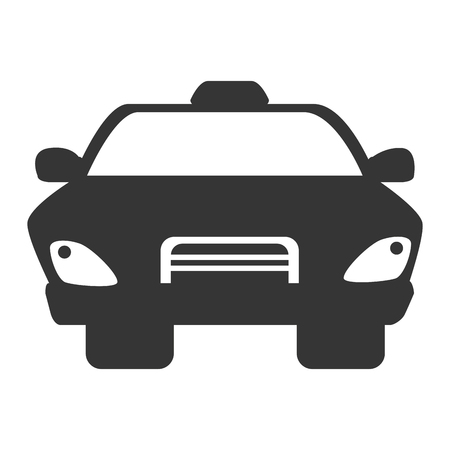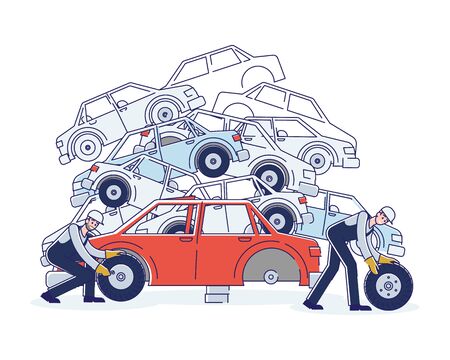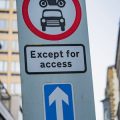Introduction to Driving Licence Costs in the UK
Obtaining a driving licence is a rite of passage for many in the UK, often marking newfound independence and opportunity. However, before embarking on this journey, it’s crucial to understand the costs involved. From mandatory fees and professional lessons to test expenses, the financial outlay can vary considerably depending on where you live and the choices you make throughout the process. Regional differences—such as higher prices in London or Scotland compared to rural areas—can have a significant impact on your budget. Likewise, opting for intensive courses, one-on-one tuition, or additional practice sessions can all influence your total expenditure. By gaining an early grasp of these variables, you not only set realistic expectations but also ensure that you’re investing wisely in this essential life skill.
2. Provisional Licence Application Fees
Before you can begin your journey on the British roads, obtaining a provisional driving licence is your essential first step. This licence not only symbolises the start of independence behind the wheel but also reflects the UK’s long-standing tradition of responsible motoring. The application process is straightforward, yet it comes with its own set of costs which vary depending on how you choose to apply—either online or by post. Below is a detailed breakdown of the current fees associated with securing your provisional licence:
| Application Method | Fee |
|---|---|
| Online (via GOV.UK) | £34 |
| By Post (using D1 form from the Post Office) | £43 |
The most cost-effective and popular choice among British learners is applying online through the official government website. Not only does this method save you £9, but it also tends to be more efficient, with applications typically processed faster than their postal counterparts. For those who prefer a more traditional approach or may not have easy access to digital means, the postal application remains a reliable option.
It’s important to remember that these fees are non-refundable, so double-checking your eligibility and ensuring you have all necessary documents—such as a valid UK passport or other approved forms of identification—is wise before submitting your application. In true British fashion, patience and preparedness will serve you well as you take this foundational step towards gaining full driving privileges.

3. Driving Lessons: Pricing and Typical Packages
When embarking on the journey to obtain a driving licence in the UK, one of the most significant investments comes from driving lessons. On average, the cost per hour for driving lessons hovers between £25 and £35, though this can fluctuate depending on location and instructor experience. Metropolitan areas like London often command higher rates, while smaller towns may offer more competitive prices.
Choosing Between Independent Instructors and Driving Schools
The British market offers two main routes for learners: independent instructors or established driving schools. Independent instructors are often praised for their flexible scheduling and personalised teaching styles. They may also offer slightly lower hourly rates. Conversely, national or local driving schools provide structured lesson plans, access to online resources, and sometimes package deals that include both theory and practical test bookings. While driving schools can be marginally pricier, many learners appreciate the added support and reliability they offer.
Typical Lesson Packages
Most providers offer packages to suit different needs—from single pay-as-you-go sessions to block bookings of 10, 20, or even 30 lessons. Block booking typically yields a small discount, with prices per hour reduced by £1-£3 compared to individual lessons. Some schools also offer intensive courses designed to prepare you within a few weeks, which can be economical if you’re able to dedicate time for concentrated learning.
Budgeting for the Right Number of Lessons
The Driver and Vehicle Standards Agency (DVSA) suggests that most learners require around 45 hours of professional instruction alongside 22 hours of private practice. However, everyone’s learning pace is unique; some may master the skills quicker, while others need extra support. It’s wise to assess your comfort behind the wheel after your initial lessons before committing to larger packages. Setting aside a realistic budget—typically between £1,200 and £1,500 in total for lessons—will help ensure your path towards passing is as smooth as a classic British road trip through the countryside.
4. Theory Test Fees and Preparation Materials
The first academic hurdle on your journey to a full UK driving licence is the theory test, overseen by the Driver and Vehicle Standards Agency (DVSA). The official theory test assesses your understanding of road signs, essential rules of the road, and hazard perception skills. Below is a breakdown of costs related to the theory test itself and the various ways you can prepare.
Official DVSA Theory Test Fee
| Service | Cost (GBP) |
|---|---|
| Theory Test (Car or Motorcycle) | £23 |
| Theory Test (Lorry or Bus) | £26 |
This fee is payable when booking your test online via the official GOV.UK website. Beware of unofficial sites that may charge additional handling fees.
Recommended Resources for Preparation
Success in the theory test often depends on thorough preparation. Fortunately, there are numerous resources available:
- Official DVSA Theory Test Kit: Available as a book, app, or web-based package. Prices typically range from £10 to £15 for books and apps.
- Mock Tests: Many websites offer free mock tests, but premium versions with detailed feedback usually cost around £5 to £10.
- Hazard Perception Practice: Dedicated apps or online platforms (£5-£12) simulate this part of the test using interactive video clips.
Additional Costs: Books, Apps, and Mock Exam Services
| Preparation Material | Estimated Cost (GBP) |
|---|---|
| The Official DVSA Theory Test Book | £10-£15 |
| Mobile App (iOS/Android) | £5-£12 |
| Online Mock Exams (Premium Access) | £5-£10 |
| Total Typical Spend on Preparation Materials | £20-£35 |
While it’s possible to rely solely on free resources, investing in official materials can boost your chances of passing on the first attempt—a wise investment considering each retake incurs the full test fee again. In sum, budgeting for both the test and quality preparation resources gives you a solid footing as you progress towards earning your UK driving licence.
5. Practical Driving Test and Associated Costs
Once you’ve navigated the theory test, the practical driving test is your next rite of passage on the journey to becoming a licensed driver in the UK. The standard fee for a practical driving test is £62 if taken on a weekday, while those opting for a weekend or evening slot will face a slightly steeper charge of £75. For individuals who require an extended test—often necessary if you have previously had your licence revoked—the cost rises to £124 for weekdays and £150 for evenings or weekends.
It’s essential to factor in these additional charges when budgeting, as availability and scheduling may influence which slot you ultimately book. Furthermore, many learner drivers choose to hire their instructor’s vehicle for the day of the test, which can incur extra costs, typically ranging from £20 to £60 depending on location and arrangement. This ensures you’re taking the test in a car you’re familiar with—a small investment that can make all the difference.
If fate does not smile upon your first attempt, re-tests will require payment of the full relevant test fee each time you book. With pass rates hovering around 50%, it’s wise to consider this possibility when planning your finances. All told, the practical driving test phase can be one of the most significant outlays in your quest for a full UK driving licence, especially when accounting for potential repeat attempts or premium booking times.
6. Optional Extras and Post-Test Expenditure
Once you’ve triumphantly passed your practical driving test and hold that coveted pink licence, the journey doesn’t end there. For many new motorists on Britain’s roads, a handful of optional extras and post-test expenditures await—each offering opportunities to enhance your skills, safety, and peace of mind as you embrace the open road.
Advanced Driving Courses
If you’re eager to polish your motoring prowess beyond the basics, several advanced driving courses are available across the UK. These courses, delivered by respected organisations such as IAM RoadSmart or the Royal Society for the Prevention of Accidents (RoSPA), typically cost between £150 and £200. They’re designed to instil greater confidence behind the wheel, sharpen hazard perception, and may even help reduce insurance premiums by demonstrating your commitment to safe driving.
The Pass Plus Scheme
Particularly popular among newly qualified drivers is the Pass Plus scheme—a government-backed initiative providing at least six hours of additional tuition with an approved instructor. Covering motorway driving, night-time journeys, rural roads, and more challenging conditions, Pass Plus aims to bridge the gap between learner status and full independence. The investment for this scheme usually ranges from £150 to £250 depending on your location and instructor rates. Many local councils offer discounts or subsidies for young drivers keen to take part.
Insurance Expenses for New Drivers
No discussion of post-test costs would be complete without mention of car insurance—a mandatory requirement and often a financial shock for first-time drivers. Annual premiums can vary widely, but it’s not uncommon for new drivers aged 17-24 to face quotes upwards of £1,000–£2,500 per year, depending on factors such as vehicle type, postcode, and whether black box telematics policies are chosen. Shopping around via comparison sites and considering multi-car family policies can sometimes yield savings.
Other Considerations
While not essential, items like P-plates (to indicate provisional status during those initial solo journeys) or additional breakdown cover may offer added reassurance during your early months on the road. All told, while passing your test is a significant milestone, budgeting for these optional extras ensures you’re truly prepared for life behind the wheel in the UK’s uniquely British motoring landscape.
7. Conclusion: Budgeting Wisely for Your Driving Journey
Obtaining a driving licence in the UK is a rite of passage that blends personal independence with a dash of British tradition. As you embark on this journey, it’s essential to approach your budget with care and clarity. From the initial application fees to the costs of professional lessons and test expenses, each stage requires thoughtful financial planning. Begin by assessing your current driving experience and confidence—do you require a comprehensive package of lessons, or will a handful suffice? Factor in regional variations, as lesson prices can differ across England, Scotland, Wales, and Northern Ireland. Remember to include the fees for both theory and practical tests, as well as any retakes, which are all too common even among seasoned learners.
To make your path to the open road smoother, create a realistic budget that accounts for all expected—and unexpected—expenses. Seek recommendations for reputable instructors or driving schools, as investing in quality tuition often pays dividends in fewer required lessons and higher pass rates. Consider spreading out the costs over several months or seeking block-booking discounts where available. Above all, make informed choices that reflect your own needs, lifestyle, and schedule rather than following a one-size-fits-all approach.
Your journey towards holding a full UK driving licence should be empowering, not overwhelming. With prudent planning and a clear understanding of the associated costs, you’ll be better positioned to manage your finances while gaining the skills needed for safe motoring on Britain’s roads. Take heart in knowing that many have navigated this path before you—and with diligence and wise budgeting, you’ll soon join them behind the wheel.

